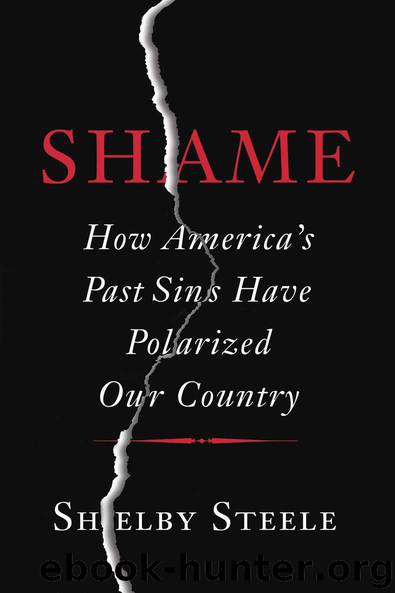Shame: How America's Past Sins Have Polarized Our Country by Shelby Steele

Author:Shelby Steele [Steele, Shelby]
Language: eng
Format: epub
Publisher: Basic Books
Published: 2015-02-23T23:00:00+00:00
8
No Past, No Future
Later, back home in the States, I learned that the man we knew as DC had achieved a quick moment of fame before disappearing into exile. In 1970, Leonard Bernstein, the great Broadway composer, had held a fundraiser for the New York Black Panthers in his opulent Park Avenue apartment. The social critic and “new journalist” Tom Wolfe made this party the stuff of legend by writing about it, first in New York magazine and then in his famous book Radical Chic & Mau Mauing the Flake Catchers. Here on indelible display was the pretentiousness, self-congratulation, and self-effacing political correctness of wealthy whites seeking a kind of moral authenticity through mere proximity to “angry blacks.” Wolfe’s description of this party was far ahead of its time as a portrait of white guilt.
DC had been the Panther spokesman at the event. When Bernstein asked him what “tactics” he would use to achieve his goals, DC said, according to the New York Times, “If business won’t give us full employment, then we must take the means of production and put them in the hands of the people.” Bernstein replied with that ingratiating white-boy hipness that makes people cringe, “I dig absolutely”—thereby effectively endorsing a Marxist revolution from his Park Avenue apartment if blacks did not get full employment.
Not long after the Bernstein party, DC was charged with the murder of one Eugene Anderson, a Panther who had been a police informant in Baltimore. DC claimed that he had nothing to do with the crime. Yet, after a warrant for his arrest was issued, he fled to Algiers, where, in due course, he hailed me down on the street. I knew nothing of the charges against him at the time.
While we actually spent many hours in easy and frank conversation, I knew DC only briefly. I liked him. He was a recognizable type to me—a goodhearted “country” black enthralled by the sophistication of the Bay Area when he had moved there as a teenager from rural Missouri. Yet he had a restless intelligence and a newfound racial pride that drove him to want more than his background had prepared him for. It was a common story in the late 1960s. We blacks were emerging from segregation and facing a future of considerable possibility, yet the deprivations of segregation had left many of us without the necessary social capital and knowhow to exploit those possibilities. This was the circumstance that turned our hard-won freedom into a harsh mistress. Freedom would strip us of excuses for our shortcomings; it would point only to our inadequacies (with no real regard for the oppression that caused them) and give the impression that the stereotype of black “inferiority” was in fact true.
I understood little of this at the time. But I could see that DC had no clear place in the world. He did not have the formal education to move into a bright American future, even though that possibility was, by then, opening up everywhere back home.
Download
This site does not store any files on its server. We only index and link to content provided by other sites. Please contact the content providers to delete copyright contents if any and email us, we'll remove relevant links or contents immediately.
The Secret History by Donna Tartt(19025)
The Social Justice Warrior Handbook by Lisa De Pasquale(12182)
Thirteen Reasons Why by Jay Asher(8882)
This Is How You Lose Her by Junot Diaz(6869)
Weapons of Math Destruction by Cathy O'Neil(6260)
Zero to One by Peter Thiel(5782)
Beartown by Fredrik Backman(5733)
The Myth of the Strong Leader by Archie Brown(5491)
The Fire Next Time by James Baldwin(5422)
How Democracies Die by Steven Levitsky & Daniel Ziblatt(5209)
Promise Me, Dad by Joe Biden(5139)
Stone's Rules by Roger Stone(5078)
A Higher Loyalty: Truth, Lies, and Leadership by James Comey(4946)
100 Deadly Skills by Clint Emerson(4911)
Rise and Kill First by Ronen Bergman(4772)
Secrecy World by Jake Bernstein(4736)
The David Icke Guide to the Global Conspiracy (and how to end it) by David Icke(4696)
The Farm by Tom Rob Smith(4500)
The Doomsday Machine by Daniel Ellsberg(4480)
